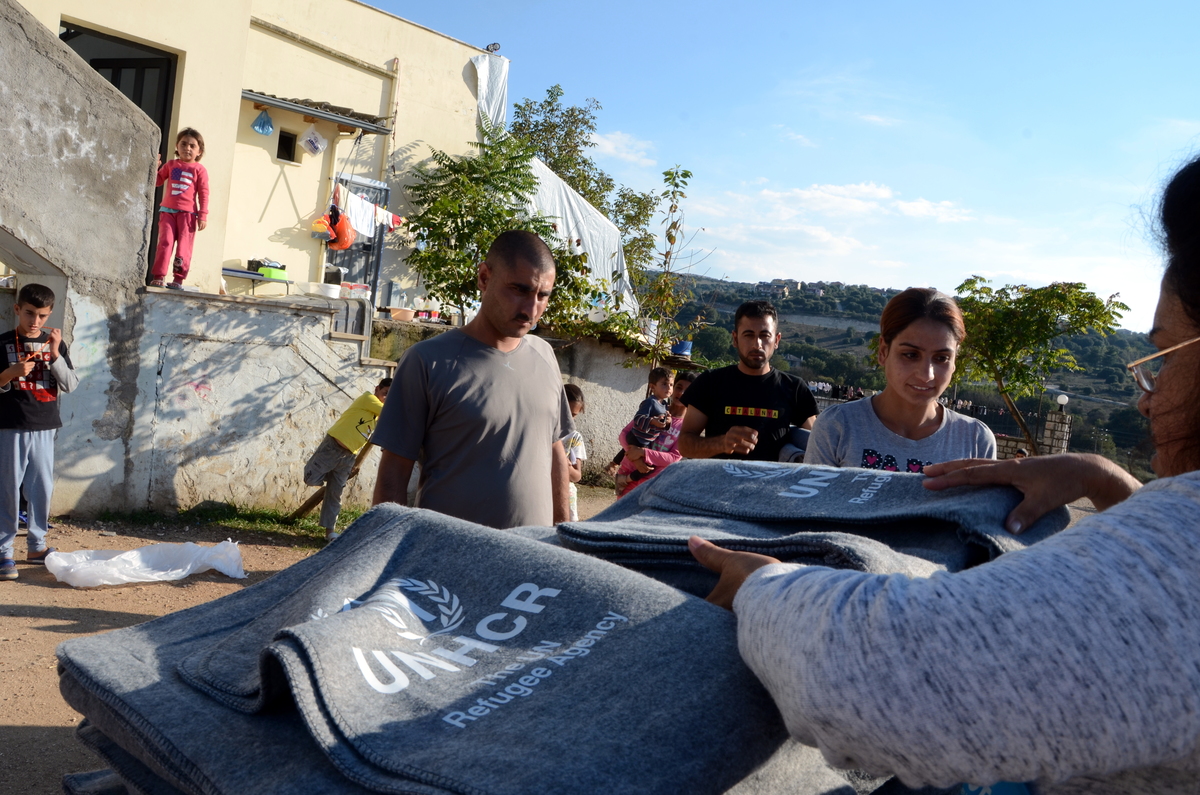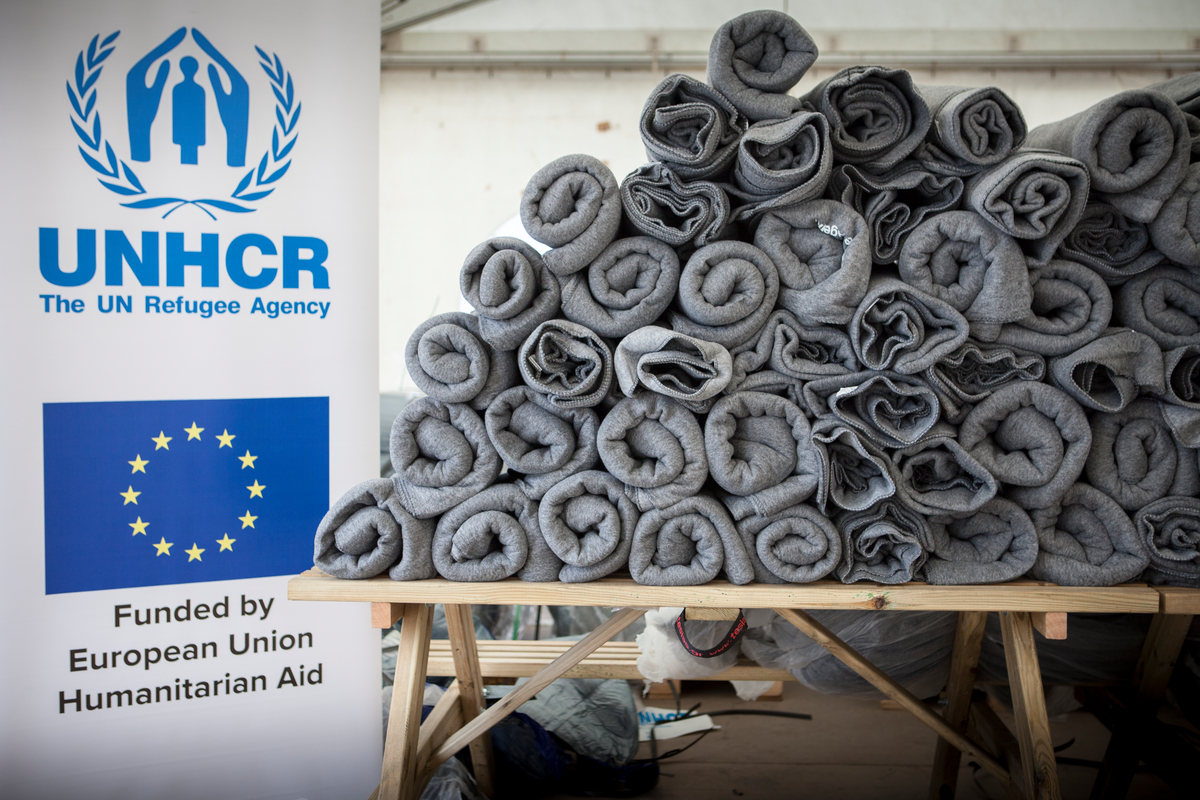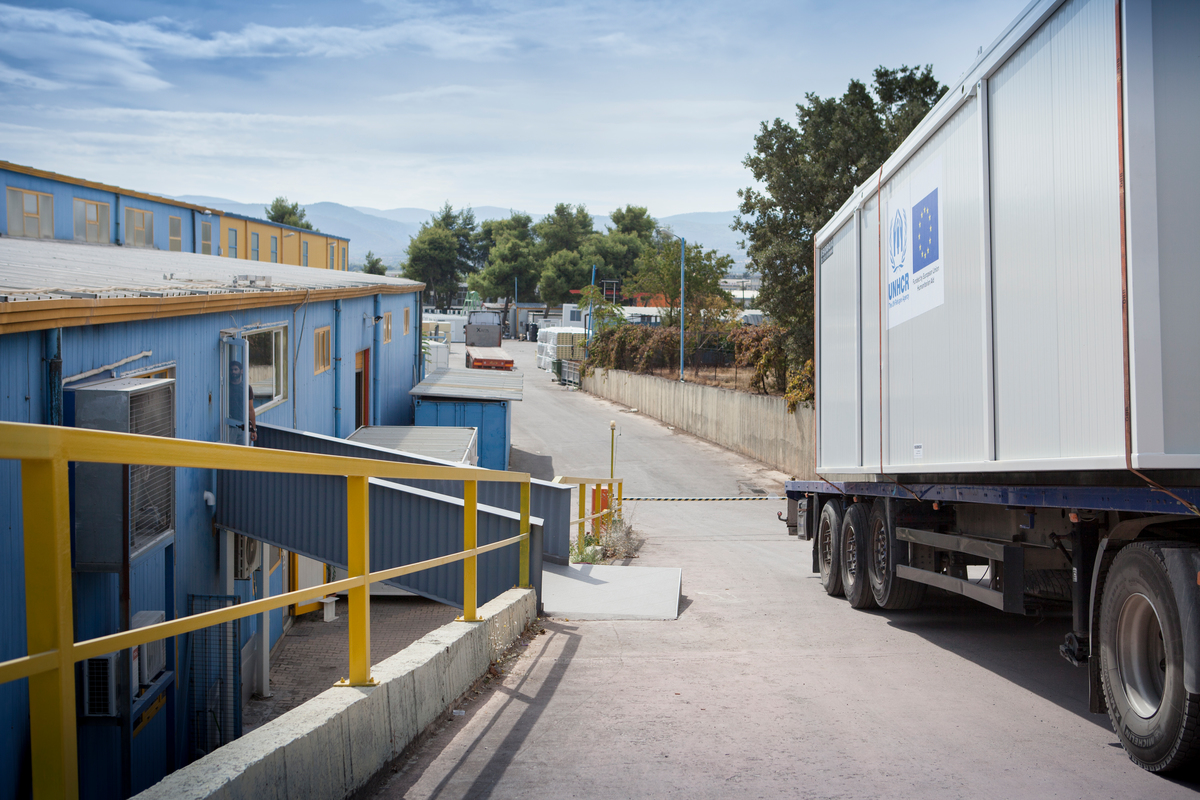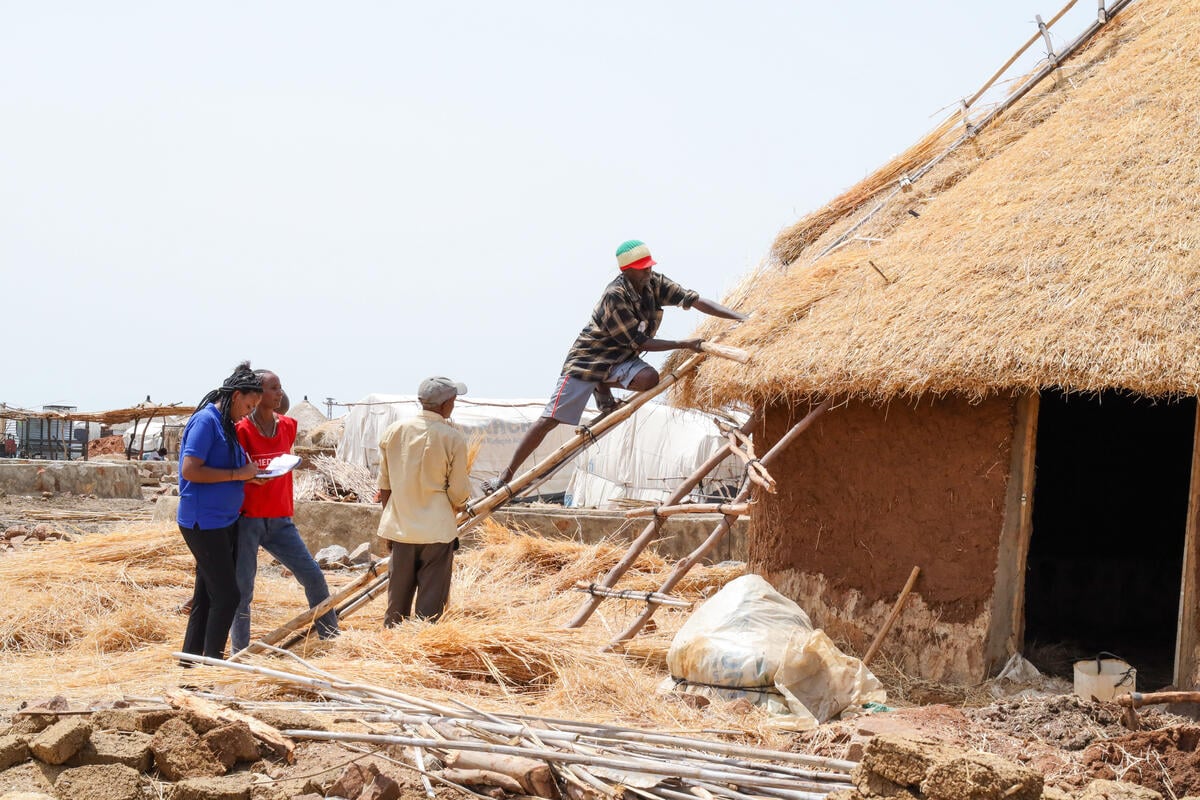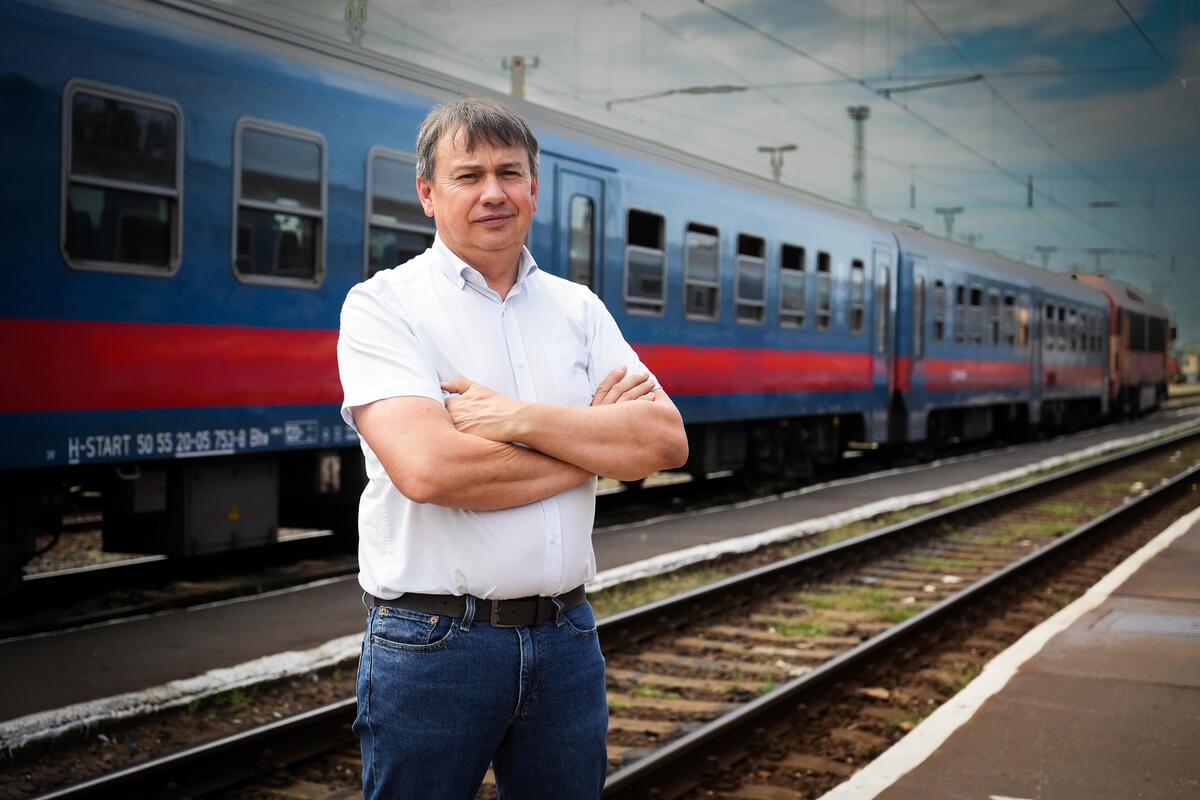Relieved residents swap canvas for walls at Greek camp
Relieved residents swap canvas for walls at Greek camp

NEA KAVALA, Greece – No sooner had Omar Mustafa and his family moved into the new accommodation allocated to them than he set to work building an outdoor kitchen and – with nails, screws and a hammer in his hands – he is making an improvised lock for it.
The Syrian family, previously housed in a tent, moved in a few days ago and immediately started making the drab, prefabricated building into a cosy home.
“The difference is huge,” said Omar’s wife, Banan, mother of four sons and two daughters between one and 12 years. “First of all it is much warmer now. This morning it was raining again and it was the first time when we did not feel it.”
Thirty-two-year old Banan is due to give birth to their seventh child in December. “When we were in a tent, rainwater could get inside and we were always panicking. Now we just have to close the door and windows and we stay dry.”
The Nea Kavala accommodation site for refugees in northern Greece is one of eight government-run sites in the country where UNHCR, the UN Refugee Agency, has started replacing tents with residential containers, known as prefab houses.
The site, a former military camp, was prepared by the Greek army and opened in February this year. Its windy location made tent living precarious for the refugees.
“This morning it was raining again and it was the first time we did not feel it.”
“We don’t know yet how it will feel like in strong wind but, in any case it is much better now,” said Omar, 41. Those who have moved into the new prefabricated houses are relieved to be protected not only from rain, cold and wind, but also from insects, rats and snakes that they say were hazards of life in a tent.
In Nea Kavala, over 170 prefab houses have been installed on an old runway, close together but still giving the residents privacy.
Every one has been improved in some way by its occupants. As women move their belongings from tents into their new homes, men are using what used to be wooden flooring in the tents to make porches, outdoor kitchens, shoe racks, shelves and partition walls.
They have covered floors with UNHCR mats and blankets to make the place warmer and shoes are left outside to keep the inside clean.
“I just finished cleaning inside. My new kitchen will be the next,” said Banan, sitting in the larger of their two rooms, which are separated by a wooden partition and shelves made by her husband. “We are a big family. If we made the kitchen inside, there would be no space left for sleeping.”
Their eldest children, two boys aged 10 and 12, both suffer from the trauma they experienced in Syria. Yamen was 10 and Mustafa 8 when air strikes hit their home town and the family decided to seek safety in other parts of the country. After several years, they fled to Turkey and then Greece, reaching its shores in February 2016.
The family has been living in Nea Kavala for more than seven months, and every night Mustafa asks his mother to cover him with layers of blankets, saying he feels cold. Banan said the layers of blankets made him feel safer rather than warmer. His elder brother Yamen is also struggling with memories of the conflict.
Nonetheless, the boys are helping their father with repair work and dream big dreams. Yamen wants to become an engineer and Mustafa hopes to be a maths teacher.
Omar built the kitchen from very little, using tools he bought together with another refugee. In Syria, he used to work as a tiler and also did also other building work. “It was very difficult here at the beginning,” said Omar calmly. “When I work, I feel at least a little relief.”
“It was very difficult here at the beginning. When I work, I feel at least a little relief.”
Besides replacing tents with some 1,000 residential containers on eight official sites with funding from the European Commission – Humanitarian Aid, and rehousing vulnerable people such those with serious health problems, UNHCR is also delivering up to 200,000 winter items such as winter clothes, sleeping bags and thermal blankets to 38,000 asylum-seekers on sites in the Greek mainland and the islands.
Fifteen sites have been assigned to UNHCR by the Interior Ministry – Migration Policy for infrastructure improvements, such as installing heating. This is part of humanitarian efforts to prepare the total of over 40 government-run sites for winter.




